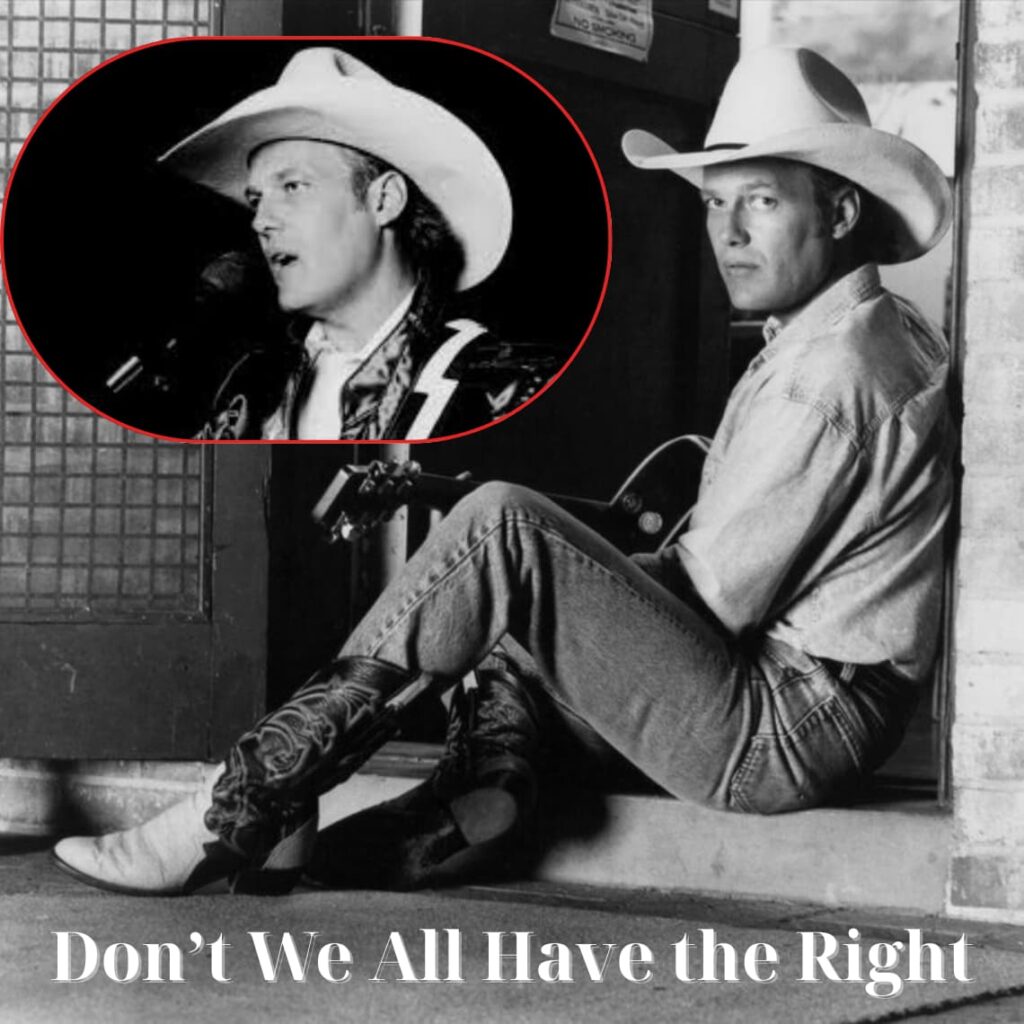
“Don’t We All Have The Right”: A Timeless Ballad of Universal Longing
Oh, the sweet, melancholic strains of Ricky Van Shelton’s “Don’t We All Have the Right”! For those of us who remember the late 1980s country music landscape, this song wasn’t just a hit; it was a warm, familiar embrace, a gentle nod of understanding in a world that often felt anything but. Released in April 1988 as the fifth and final single from his phenomenal debut album, Wild-Eyed Dream, this track soared straight to the top, becoming Ricky Van Shelton’s third consecutive #1 hit on the Billboard Hot Country Singles & Tracks (now Hot Country Songs) chart, as well as reaching the pinnacle on the Canadian RPM Country Tracks chart. This was an astonishing feat for a debut artist, solidifying his place as a new voice steeped in the traditional sounds that many of us craved.
The beauty of “Don’t We All Have the Right” lies in its profound simplicity and its universal message. Originally penned and recorded by the legendary Roger Miller in 1970, on his album Trip in the Country, Van Shelton took this gem and polished it anew, infusing it with his signature smooth, heartfelt delivery. The song speaks to the fundamental human experience of making mistakes, of falling short, and of the innate desire for forgiveness and understanding. It’s a poignant reflection on regret, specifically in the context of a lost love, where the narrator acknowledges his own missteps. Lines like “I laughed it off when she left / I thought she’d come back again” paint a picture of youthful arrogance or perhaps just a naive assumption that love, once given, would always return.
But the core of the song, the part that truly resonates, is that recurring rhetorical question: “Don’t we all have the right to be wrong now and then?” It’s a plea for grace, a recognition that imperfection is part of the human condition. We all stumble, we all misjudge, we all make choices we later wish we could undo. In a world that often demands perfection and casts quick judgment, this song offered a comforting counter-narrative, a gentle reminder that vulnerability is not a weakness but a shared reality. It’s about accepting our fallibility and hoping for empathy from others, just as we should extend it to them.
Ricky Van Shelton himself, with his classic country sensibilities and genuine, unassuming demeanor, was the perfect artist to deliver such a message. Born in Grit, Virginia, he brought a grounded authenticity to his music that endeared him to millions. He wasn’t a manufactured pop star; he was a craftsman, building his career on solid, traditional country sounds that harkened back to the golden age of the genre. His rise to fame in the late 80s was a breath of fresh air for those who felt country music was veering too far into pop territory. He reminded us of the power of a clear, strong voice singing a simple, honest story.
Listening to “Don’t We All Have the Right” today, it evokes a cascade of memories. For many of us, it was the soundtrack to late-night drives, quiet reflections, or perhaps even our own moments of regret and longing. It transports us back to a time when melodies were simpler, lyrics more direct, and the emotions raw and real. It’s a testament to the timeless nature of truly great songwriting and a performer who knew how to imbue every note with genuine feeling. It reminds us that even decades later, the shared human experience of being imperfect, of making mistakes, and of yearning for understanding, remains as universal and relevant as ever. And yes, in the grand tapestry of life, don’t we all have the right to be wrong now and then? Indeed, we do.